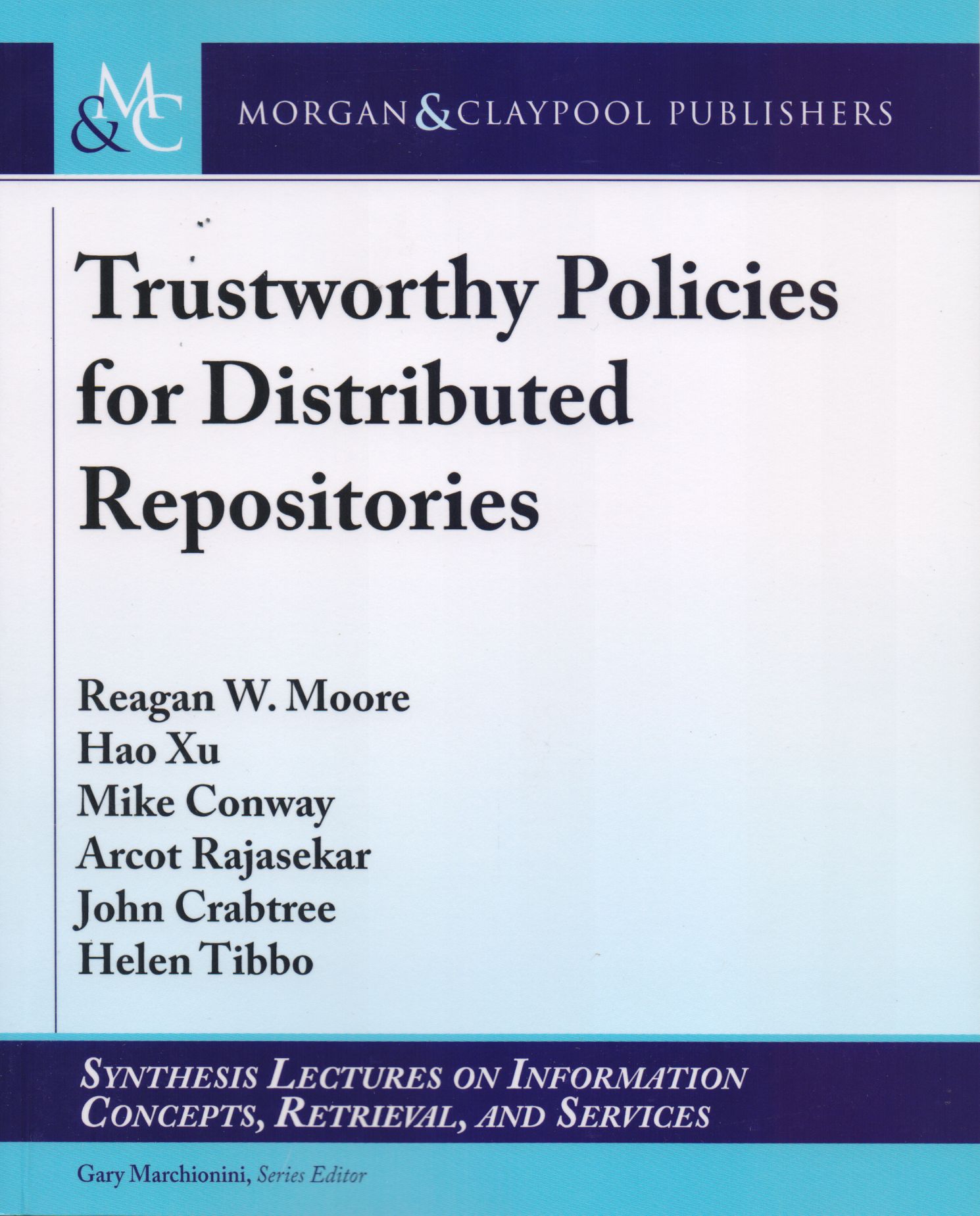Libros relacionados
 |
Scholarly Collaboration On The Academic Social Web He, Daqing / Jeng, Wei Morgan & Claypool Publishers |
 |
Database Anonymization: Privacy Models, Data Utility, And Microaggregation-Based Domingo-Ferrer, Josep / Sánchez, David / Soria-Comas, Jordi Morgan & Claypool Publishers |
 |
Dynamic Information Retrieval Modeling Hui Yang, Grace / Sloan, Marc / Wang, Jun Morgan & Claypool Publishers |
 |
Learning From Multiple Social Networks Nie, Liqiang / Song, Xuemeng / Chua, Tat-Seng Morgan & Claypool Publishers |
 |
Trustworthy Policies For Distributed Repositories W. Moore, Reagan / Xu, Hao / Conway, Mike / Rajasekar, Arcot Morgan & Claypool Publishers |
 |
Semantic Interaction For Visual Analytics: Inferring Analytical Reasoning For Mo Endert, Alex Morgan & Claypool Publishers |
 |
Implementing And Assessing Use-Driven Acquiitions: A Practical Guide For Librari Carrico, Steven / Leonard, Michelle / Gallagher, Erin Rowman & Littlefield Publisher Inc |


|
Título: Notion Of Relevance In Information Science, The: Eveybody Knows What Relevance I | |
| Autor: Saracevic, Tefko | Precio: $875.00 | |
| Editorial: Morgan & Claypool Publishers | Año: 2016 | |
| Tema: Informacion | Edición: 1ª | |
| Sinopsis | ISBN: 9781598297683 | |
| Everybody knows what relevance is. It is a "ya'know" notion, concept, idea-no need to explain whatsoever. Searching for relevant information using information technology (IT) became a ubiquitous activity in contemporary information society. Relevant information means information that pertains to the matter or problem at hand-it is directly connected with effective communication. The purpose of this book is to trace the evolution and with it the history of thinking and research on relevance in information science and related fields from the human point of view. The objective is to synthesize what we have learned about relevance in several decades of investigation about the notion in information science. This book deals with how people deal with relevance-it does not cover how systems deal with relevance; it does not deal with algorithms. Spurred by advances in information retrieval (IR) and information systems of various kinds in handling of relevance, a number of basic questions are raised: But what is relevance to start with? What are some of its properties and manifestations? How do people treat relevance? What affects relevance assessments? What are the effects of inconsistent human relevance judgments on tests of relative performance of different IR algorithms or approaches? These general questions are discussed in detail | ||
Librería Bonilla SA de CV © Todos los derechos reservados. 2019
Última actualización: Jul 2019





